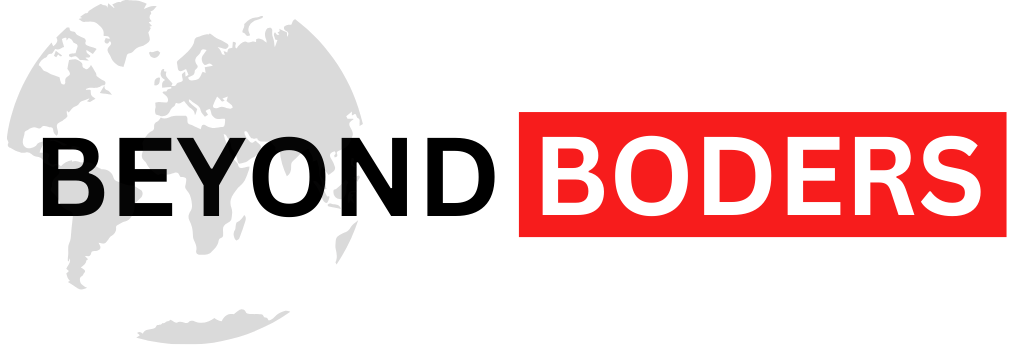Ebrahim Raisolsadati, widely known as Ebrahim Raisi, was an Iranian politician and Muslim jurist who served as the eighth president of Iran from 2021 until his death in 2024.
A staunch Principlist, Raisi ascended to the presidency following his victory in the 2021 election.
Early Life and Education
Born on December 14, 1960, in the Noghan district of Mashhad, a city in northeastern Iran known as a religious hub for Shia Muslims, his family had strong clerical roots.
Raisi’s father, Seyed Haji, was a cleric who passed away when Raisi was only five years old, leaving a significant impact on his early life.
This loss likely influenced Raisi’s strong religious inclinations and his dedication to following in his father’s footsteps.
Raised in a religious environment, Raisi began his education at the “Javadiyeh School” in Mashhad.
In 1975, at the age of 15, he moved to Qom, a city renowned for its Islamic seminaries and scholarly environment. There, he enrolled in the “Ayatollah Boroujerdi School” to pursue advanced religious studies.
His mentors included several prominent scholars, such as Seyyed Hossein Borujerdi, Morteza Motahhari, and Abolghasem Khazali. Under their guidance, Raisi delved deep into Islamic jurisprudence and theology.
Raisi has claimed to have earned a doctorate in private law from Motahari University, though this claim has been disputed by various sources.
The authenticity of his academic credentials has been a contentious issue, with critics arguing that his academic achievements were exaggerated.
Raisi’s journey in the clerical world began in earnest when he joined the Qom Seminary at a young age. His education continued at the Ayatollah Borujerdi School, where he not only studied but also taught other students.
His mentors were highly influential in shaping his religious and political views. Raisi studied under figures like Seyyed Hossein Borujerdi, Morteza Motahhari, Abolghasem Khazali, and Ali Meshkini, who were well-respected in the Shia scholarly community.
Career
Raisi’s judicial career began in 1981 when he was appointed the prosecutor of Karaj and Hamadan simultaneously, despite the significant distance between the two cities.
This dual role showcased his early commitment to the judiciary and his ability to handle multiple responsibilities. His rise within the judicial ranks was rapid, and by 1985, he had moved to Tehran to serve as the Deputy Prosecutor.
Raisi’s judicial career continued to progress as he took on more prominent roles. He served as Deputy Chief Justice from 2004 to 2014, Attorney General from 2014 to 2016, and eventually Chief Justice of Iran from 2019 to 2021.
As Chief Justice, Raisi was known for his hardline stances and his efforts to consolidate the judiciary’s power.
In 2016, Raisi was appointed as the Custodian and Chairman of Astan Quds Razavi, one of Iran’s wealthiest and most influential religious foundations.
This position further cemented his status within Iran’s clerical and political elite. During his tenure, he focused on expanding the foundation’s economic and social activities, particularly those benefiting pilgrims and the poor.
Raisi first entered the political arena as a presidential candidate in the 2017 election. Running as the candidate of the conservative Popular Front of Islamic Revolution Forces, he was supported by various conservative factions, including the Front of Islamic Revolution Stability.
Raisi’s campaign focused on promises to fight poverty and corruption and to bring about fundamental changes in the country’s executive management.
Despite a vigorous campaign, Raisi lost to the moderate incumbent President Hassan Rouhani, securing 38.3% of the votes compared to Rouhani’s 57%.
He did not concede gracefully, instead challenging the election results and alleging widespread violations of the law.
Undeterred by his defeat in 2017, Raisi ran again in the 2021 presidential election. This time, he emerged victorious amid allegations of electoral manipulation and a low voter turnout of 48.8%.
Out of the 28.9 million votes cast, Raisi secured 62.9%. His victory was seen by many observers as a result of systemic rigging in favour of Raisi, who was closely aligned with Supreme Leader Ali Khamenei.
Raisi’s presidency was marked by a hardline stance on various issues. He maintained a confrontational approach towards the United States and Israel, often using harsh rhetoric against these nations.
Under his administration, Iran intensified its uranium enrichment activities, further straining relations with the West and hindering international inspections of its nuclear facilities.
Raisi’s tenure saw significant domestic unrest, notably the widespread protests following the death of Mahsa Amini in 2022.
The protests, which erupted over issues of police brutality and systemic injustice, were met with a heavy-handed response from the government.
This period highlighted the growing discontent within Iran and Raisi’s inability to address the underlying social and economic issues.
Internationally, Raisi’s administration supported Russia during its invasion of Ukraine, aligning Iran with Moscow against the West. This move further isolated Iran on the global stage.
Additionally, Iran continued to support proxy groups like Hezbollah and the Houthi movement, maintaining its influence in regional conflicts.
Personal Life
He was married to Jamileh Alamolhoda, an academic and the daughter of Ahmad Alamolhoda, the influential Friday prayer leader in Mashhad.
Jamileh Alamolhoda is an associate professor at Tehran’s Shahid Beheshti University and the president of the university’s Institute of Fundamental Studies of Science and Technology.
The couple had two daughters, both of whom pursued higher education at prestigious Iranian universities.
Despite his public persona as a hardliner, Raisi’s personal life was relatively private. He was known to be a family man, deeply involved in his daughters’ education and well-being.
His family connections further strengthened his position within Iran’s religious and political circles.
Achievements
Raisi’s career was marked by numerous significant achievements. His rise through the judicial ranks to become the Chief Justice of Iran showcased his legal acumen and his ability to navigate the complex political landscape of the Islamic Republic.
His tenure as the Custodian and Chairman of Astan Quds Razavi demonstrated his leadership skills and his commitment to expanding the foundation’s influence and activities.
As president, Raisi’s administration focused on bolstering Iran’s regional influence and maintaining its strategic interests.
Despite the controversies surrounding his presidency, his ability to secure and hold the highest office in Iran was a proof of his political prowess.
Controversy
Raisi’s career was marred by several controversies, most notably his involvement in the 1988 mass executions of political prisoners.
This period of his life earned him the moniker “Butcher of Tehran” and has been a focal point of criticism from human rights organizations globally.
Often referred to as the “death committee,” Raisi, along with other officials, was implicated in the execution of thousands of political dissidents.
The majority of those executed were supporters of the People’s Mujahedin of Iran, although other leftist factions were also targeted.
This event has been described as a political purge unprecedented in modern Iranian history.
The United States sanctioned Raisi for his alleged involvement in human rights abuses, including his role in the 1988 executions.
Also, the International human rights organizations and various United Nations special rapporteurs accused Raisi of crimes against humanity for his role in these executions.
Despite the significant evidence and testimonies against him, Raisi has never publicly commented on his involvement in the 1988 executions.
This period remains a dark chapter in his career and has continued to haunt his political and judicial life.
In addition to his past actions, Raisi’s presidency was also controversial due to the perceived manipulation of the 2021 presidential election.
Many observers believed that the election was rigged in his favour, undermining the legitimacy of his administration.
Moreover, Raisi’s exact religious qualifications have been a matter of some debate. Initially, he referred to himself as an “Ayatollah” on his personal website.
However, following media scrutiny and investigations into his academic and clerical background, he retracted this title and began using “Hojat-ol-Eslam,” a clerical rank just below Ayatollah.
This controversy highlighted the challenges Raisi faced in establishing his legitimacy within the clerical hierarchy.
Cause of Death
On May 19, 2024, Ebrahim Raisi died in a tragic helicopter crash near the town of Julfa, close to the Azerbaijan border.
The crash also claimed the life of his foreign minister, Hossein Amir-Abdollahian, and several other officials.
The helicopter went down in challenging weather conditions, in mountainous terrain, which made the search and rescue operations difficult.
The exact cause of the crash remains under investigation, but it has been suggested that icy weather played a significant role in the accident.
Raisi’s death marked a significant moment in Iranian politics, as he was the second president of Iran to die in office, following Mohammad-Ali Rajai, who died in a bombing in 1981.
His sudden death left a power vacuum and raised questions about the future direction of Iranian leadership.
Net Worth
Ebrahim Raisi was reported to have amassed a significant fortune during his career. His net worth was estimated to exceed $110 billion, a figure that reflects extensive property holdings, private jets, luxury yachts, and a substantial reserve of gold.
Raisi’s lavish lifestyle stood in stark contrast to the economic hardships faced by many Iranians, further fueling criticism of his leadership and personal ethics.




